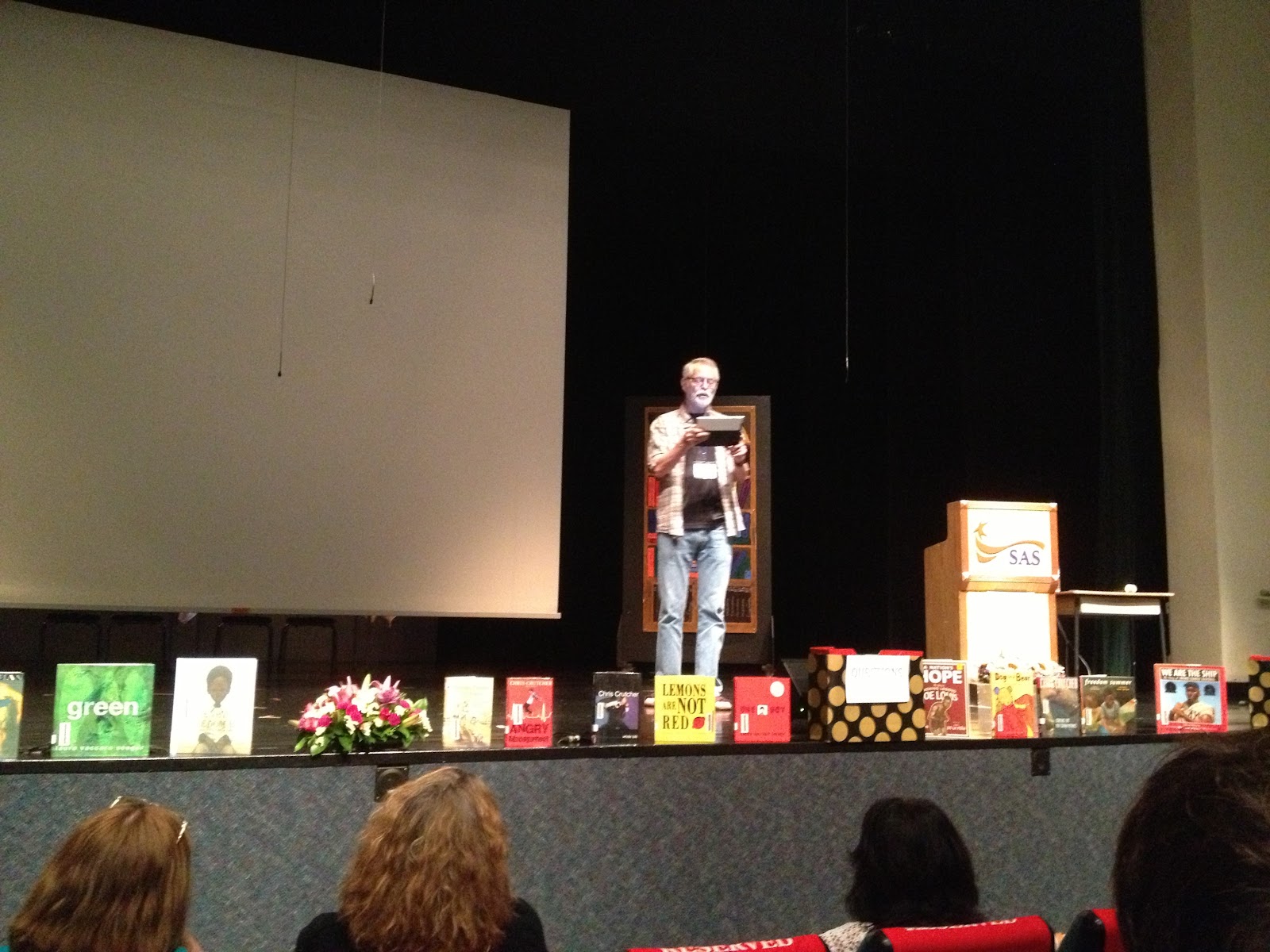With Debbie Wiles and her heart-warming tales of small town southern charm, Chris Crutcher and his edgy teen characters who face impossible odds, Kadir Nelson and his awe-inspiring portraits of people whom history can't forget, and Laura Vacarro Seeger and her bold colors and simple words that aim at the heart of an idea in such complex ways, the presenters couldn't have seemed more diverse. Yet throughout the course of their sessions, as they each shared their experiences and processes, I saw well beyond their final products to something greater.
What was common in all of their work was the process. When they work, they trust their voice, they listen to it, and they “bring total intimacy to it.” They draw on their experiences as far back as childhood to inform it. They use it to "link their mind to their heart and let it come out with actions." And while every idea may not work out in the end, they are brave enough to put pencil to paper and try it out. In short, they trust in the process.
So what does this mean for us as teachers? I know that we (and our students) may never be Coretta Scott King nor Caldecott winners, and I know that we have certain obligations that these professionals don’t. But I also know that we are committed to developing the best readers and writers we can. With that in mind, I wonder about the following:
- How do we honor the process vs. the final product?
- How do we invite our students (and ourselves) to “try it out?” Do they see the value in it?
- Is voice something we teach or something we foster?
- How do the units of study help and/or hinder our writers in developing voice?
- How does our pacing of units affect our writers?
- Isn't this the same process we use when we teach?
And while I don’t pretend to know the answers to these questions, I do know that by asking them in our PLCs and setting possible plans with colleagues, we’ll continue to learn and grow. After all, there’s no way we can know the answers without going through a process.



Fostering voice is not easy. Yet, I think you hit upon something critical in your last question about the process we use as teachers. Here's the thing. We need to model our voice as teachers as we try things out, as we fail in our attempt to get ideas across, and as we succeed in delivering gems. As we strive to develop our own voice and style as teachers, we become the perfect role models for students trying to develop their own. It not just about writing, its about modeling how we became the humans we are today.
ReplyDeleteTake many of those same questions and ask them about ourselves as a human beings. Do we honor ourselves as we go through life or just the final product? Do we invite ourselves to try and fail new things? Do we give ourselves the change to fail brilliantly? Do we value that effort? Do we constantly seek out our voice and look for opportunities to give it growth? Does the pacing of our lives affect who we are as human beings? Isn't the process we use to become lifelong learners the same process we use as teachers?
Thanks, Matt. I originally thought that in terms of "process" I meant writing or learning, but now I see that it's really anything in life that we're trying to do as we make our way through it.
ReplyDelete